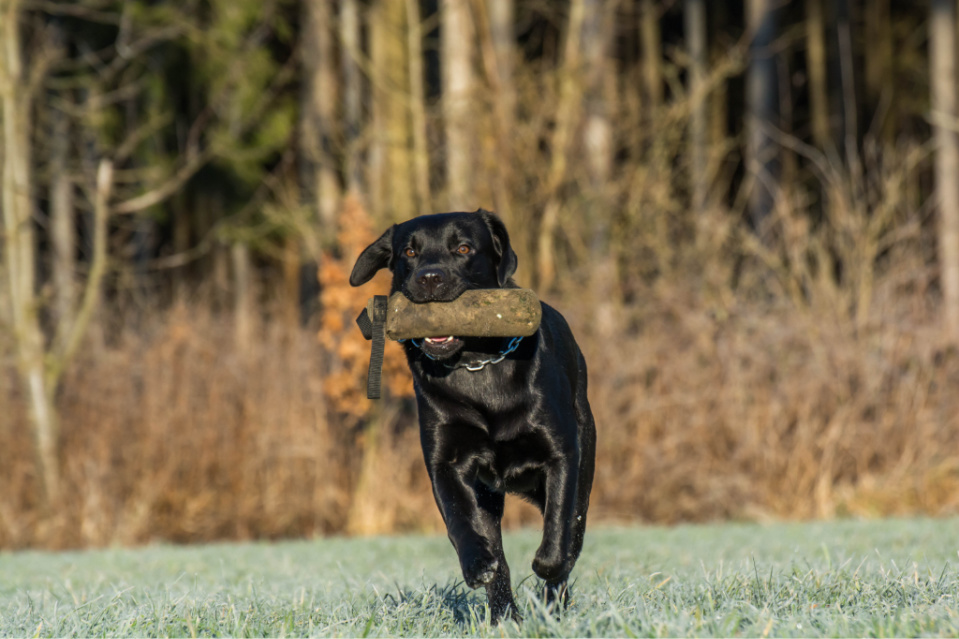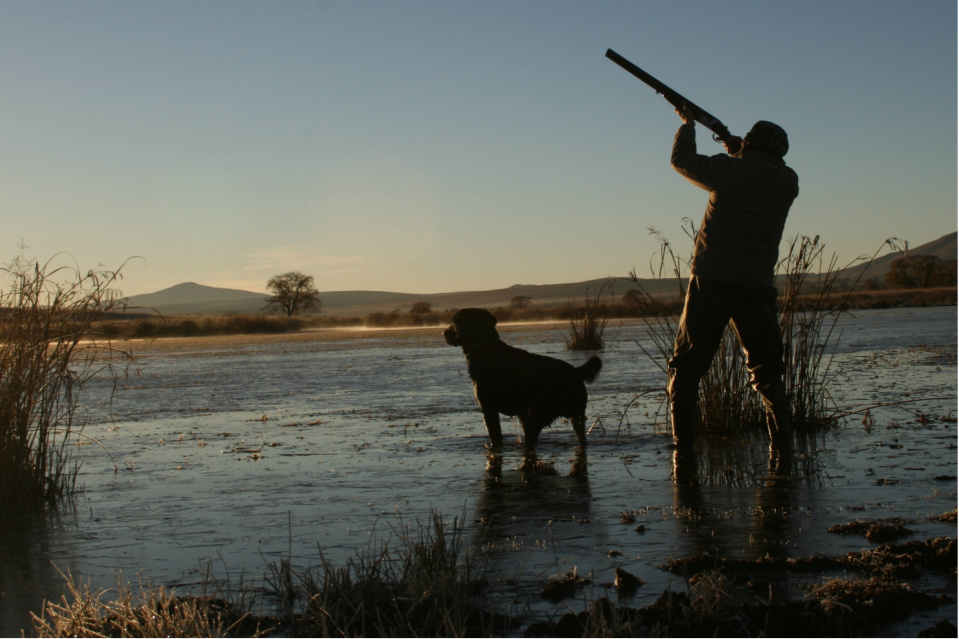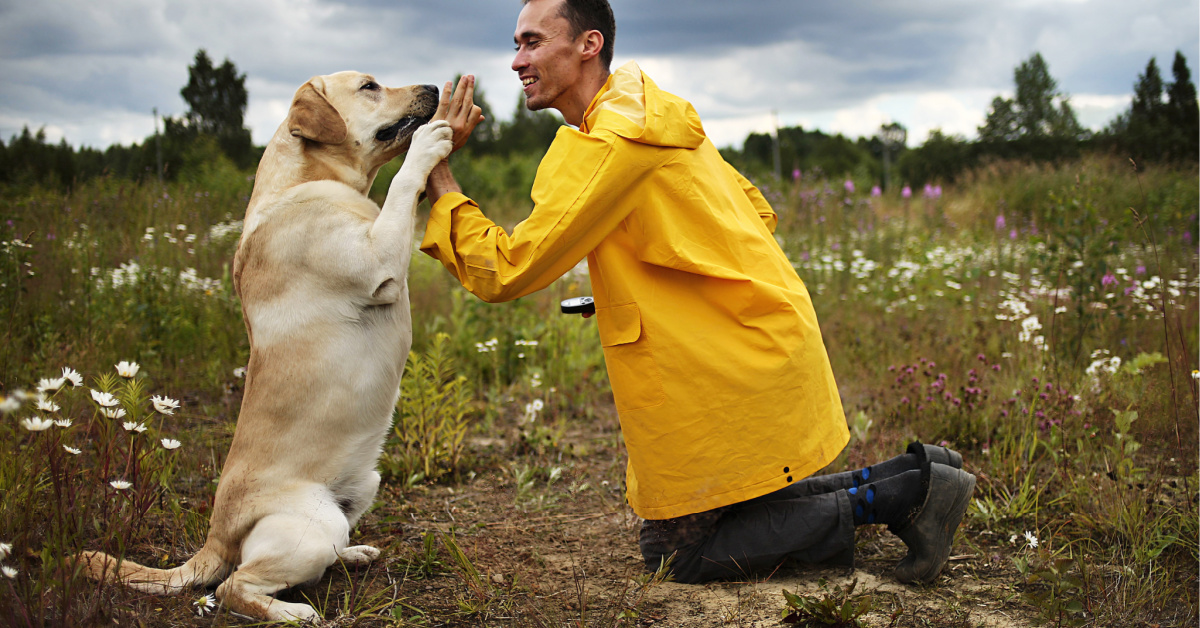Labrador retrievers are one of the most popular dog breeds that are well-known for being family companions and friendly pets. However, more than just being a social breed, Labs actually have the skills and the instincts needed for training for field trials.
In this article, we will give a short background on how Labradors came to work in the field and some tips on how to train your Lab for field work.
History of Training Labradors for Field Trials
We can trace the history of the Labrador breed back to the 16th century when owners used them as fishing dogs. We can see proof of this through their webbed paws and waterproof coats.
However, it wasn’t until the early 1900s that Labradors were recognized as an official breed by the English Kennel Club. By that point, their primary purpose was to provide assistance as hunting dogs.
People back then thought that Labradors were perfect hunting companions because of their black coats and short hair. This preference for black Labradors in hunting is what started the breeding tradition of black-only Labs.
What is a field Labrador?

There is only one breed of Labrador in the world, but there is a pretty clear distinction between a show Lab and a working Lab. Years of specific breeding brought on these differences.
Oftentimes, a show Lab is not bred with a field Lab and vice versa. Over time, this has caused significant differences between the two to manifest. Even this research article that looked into genes of Labradors separated them into two types: the common Lab and the field Lab.
Take a look at some of the key differences that the two types of Labrador retrievers have.
1. Show Labrador
A show Labrador is the stockier of the two. People also sometimes refer to them as the English Labrador. Generally, this type of Labrador is less energetic than its field counterparts. They tend to display classical Labrador looks, with the bulky build and wide tail.
2. Field Labrador
Field Labs, or American Labs, on the other hand, are more athletic and look leaner and less stocky than show Labs. Because they specifically bred for work, they need more exercise to keep up with their energy levels.
According to this study in 2015, a field Lab is not suitable for a family with children since Labradors that live in a household with children were less likely to exercise.
Given that field Labs need a lot of going around, it is not a wise choice to have one as a pet, unless you have the time and energy to spend on your Lab.
What exactly is field work?
Field work or field trials are competitions that aim to show off the natural retrieving ability of dogs. It goes back to the roots of why people bred Labradors in the first place—to fetch game during hunting stints.
Labradors are not the only dogs to participate in field trials. Many other breeds with retrieving histories also compete in these competitions. Field trials are very intense, as organizers try as much as possible to mimic what it’s like in a day’s work of being a hunting dog.
Training your Lab for field trials
So, how exactly do you train your Labrador for field tests?
Well, take a look at these suggestions and tips to aid you on your field trial training for your Labrador retriever:
1. Start them young.
If you really dedicated to training your Lab for field trials, it is best that you start training them from an early age. For them to succeed as hunting dogs, you have to spark an interest in them. Start by getting them used to smaller and more common birds. This will slowly pique their interest, and you can later build your way up to larger birds.
2. Get your Labs used to the sound of gunfire during training for field trials.

Becoming a successful hunting dog means that you have to accustom your little Lab to the loud noises that gunfire brings.
Start with small banging noises. Don’t start with incredibly loud noises since you will risk scaring your Lab otherwise. Slowly build up this tolerance to sound until you are confident that they are already used to gunfire.
Take note, however, that dogs sometimes get anxious, so you should not force them into it right away. Be patient and wait until your Lab becomes comfortable with the noise.
3. Engage them in obedience training.
Following commands and being obedient are just some of the most crucial traits in field work. Because of this, your Labrador needs to follow their handler’s instructions to become a successful competitor in the field. If you train your Lab to be obedient early on, you will have more luck in training them for actual field work.
4. Train them to follow commands.
In conjunction with the previous suggestion, a dog that has been well-trained in commands will fare better in field tests. Hence, you need to make sure that your Labrador retriever will be able to execute any task you set for them, such as grabbing the game and returning it to you efficiently.
5. Get them used to swimming and water.
You need to train your Lab in the water to prepare them for work in the field. Start by introducing them into shallow areas and go from there.
Be cautious, though, and make sure that the water is not too cold or too warm for your dog. Don’t introduce your Labrador to water temperature and water level that they will not be comfortable in. Don’t force them to swim, too. Instead, encourage them and spike their interest by putting out a toy for them to retrieve.
6. Expose your Labrador retriever to nature and the outdoors.
Field tests will be outdoor activities, so training your Lab in the outdoors will be crucial in getting them to succeed.
Start by exposing your Labrador little by little to walks, and then gradually introduce them to an outdoor environment. During these outdoor activities, you need to make sure that your Lab still acts on their best behavior.
7. Get a professional to train your Lab for field work.
Sometimes, a great option would be to contact a professional trainer to help you in preparing your Lab for field trials. Professional trainers already know how to train Labradors to work in the field, so if you are still relatively inexperienced in field training your Lab, this could be a great help for you as well.
8. Join clubs or groups for field trial training.
The field work community is a thriving one. Hundreds of dog and dog owners compete in field trials everywhere. Sharing your experiences and learning from theirs is a great idea to start you off in preparing your Labrador.
Conclusion
Training your Labrador for field trials will not be quick and easy. It will take time and persistence. But, if you are determined, then that is no problem at all. Preparing your dog for something that interests both of you is an excellent activity that will further tighten the bond between you and your pet.







